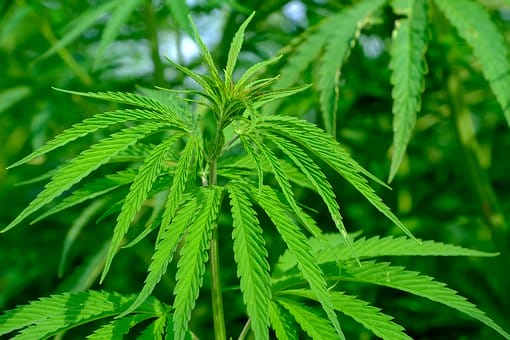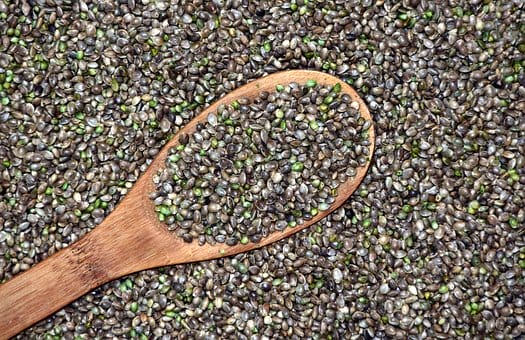
Back in the 1930s, Henry Ford was a huge proponent of hemp as a highly profitable crop. At that time, it was supposed to be a billion-dollar crop. However, owing to the Marijuana Tax Act of 1937, this crop slowly died down.
In 1970, President Nixon included hemp in Schedule 1 Controlled Substances. Three decades later, Colorado became the first state to ever legalize industrial hemp in 2013. Recently in 2018 – Donald Trump passed the Farm Bill which put hemp among the mainstream crops thus opening countless doors of opportunities for hemp growers. This is the dawn of a new era and the possibilities are endless for those in the business of hemp production.
Can hemp be grown in the US?
Yes, as of now, hemp cultivation and growth is legal in the US; all thanks to the 2018 Farm Bill. Hemp is a highly lucrative industrial crop with implications in grain, fiber production, CBD oil, seeds, fuel, etc. It’s legal to sell and grow hemp and CBD products. That means we are looking at a billion-dollar market in the making which is supposed to grow exponentially. It might happen sooner than later.
Best States For Hemp Growth
Colorado is the #1 state in terms of hemp production. In the long-term, it might turn into a research state. Kentucky is famous for growing a lot of legal CBD (cannabidiol) to extract oil. Last year, Montana got permission for 22,000 acres of farms for hemp farming. Minnesota is likely to experience some significant expansion in 2019 as well. There are still 9 states where hemp farming is not legal including Iowa.

Places From Where Farmers Can Get Seed
As an aspiring hemp farmer, it’s important to find a trusted supplier from where you can procure hemp seeds like high CBD hemp seeds. Europe and Canada continue to be the biggest suppliers. However, there’s no guarantee as to how seeds procured from outside the US would eventually acclimatize with the soil and climatic conditions. If the crop ends-up exceeding the 0.3% THC mark at the time of harvest, it becomes marijuana under federal law. That means it’s no longer legal.
With that said, over the years a growing number of big players have emerged in the market that can act as a springboard for farmers. One of those pioneers is Industrial Hemp Farms. It’s a wholesale supplier of hemp clones and seeds with promising genetics. It also deals in CBD hemp biomass. The company also buys hemp and hemp products from other farmers.
Getting Into The Hemp Business For A Farmer
Even though hemp contains less than 0.3% THC (the psychoactive compound) there are strict prohibitions placed by the Federal Government on the extraction and cultivation of CBD.
Therefore, if you want to grow hemp in the US legally, you would need to get in touch with the local zoning agencies as well as the officials at the city and country. This is important to know all the regulations, conveyances, and codes that might be necessary for you to comply with. Let’s not forget the prerequisite for staying compliant – growing hemp that has no more than 3.0% THC content.
You are going to apply for a permit and also register with your state to establish yourself as a hemp grower. You can check with the State’s Department of Agriculture to see if you would need a permit and if you would need to register yourself. You may also have to procure documents proving that the crop will be processed within the state. Let it be known that shipping hemp/hemp products outside your state will be subjected to strict federal laws.
When Should You Harvest Hemp?
Hemp is considered fully matured after it has been in the ground for 90-100 days. As you begin to near this period, you should start noticing the seed head starting to mature from the bottom and slowly moving upwards. Seed bracts begin to expose the seeds once they reach maturity. At this point, you can let them air dry naturally.
Around 100-120 days in (this is generally around September or October), hemp becomes primed for harvesting which can be done with standard combines. You won’t need special equipment for this.
Hemp Farming Challenges
One of the biggest challenges to this farming (in addition to strict federal laws) remains procuring the right quality of seeds. As an industrial hemp grower, it’s advised to conduct in-house testing of the seeds to check for THC content.
Special attention should be paid to the harvest time because slight delays could alter the legal THC limit. If the end-product at the time of harvest doesn’t comply with that limit, it means the whole crop is rendered useless. You then have to wait a whole year before hemp could be harvested.
These are some of the challenges that a farmer needs to be wary of to run a successful business.
Throughout the year, our writers feature fresh, in-depth, and relevant information for our audience of 40,000+ healthcare leaders and professionals. As a healthcare business publication, we cover and cherish our relationship with the entire health care industry including administrators, nurses, physicians, physical therapists, pharmacists, and more. We cover a broad spectrum from hospitals to medical offices to outpatient services to eye surgery centers to university settings. We focus on rehabilitation, nursing homes, home care, hospice as well as men’s health, women’s heath, and pediatrics.







